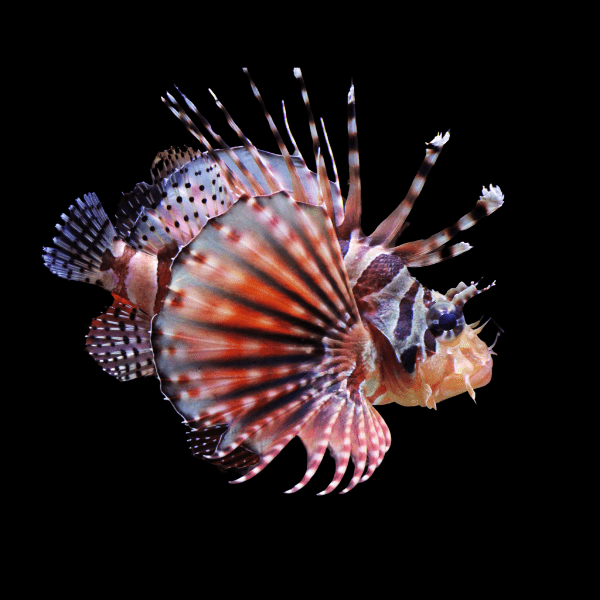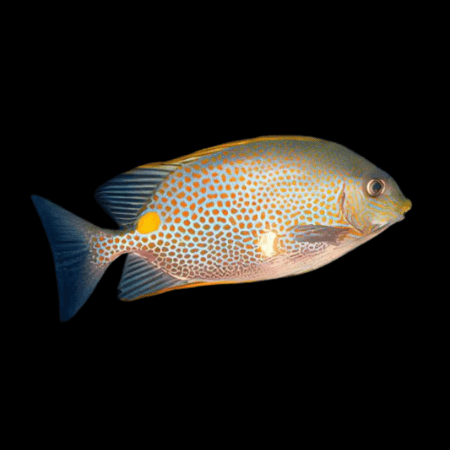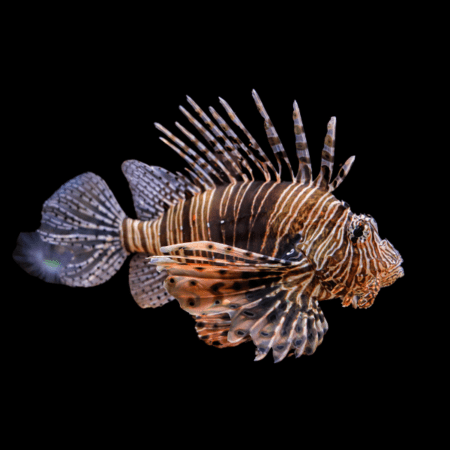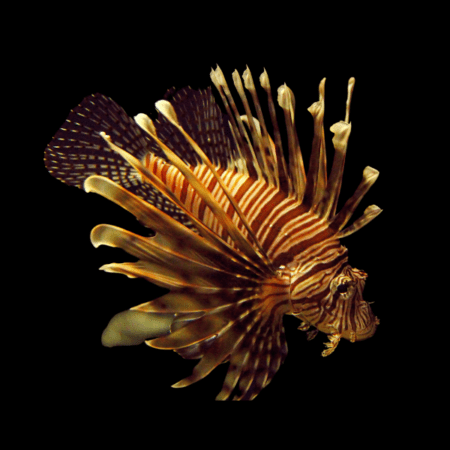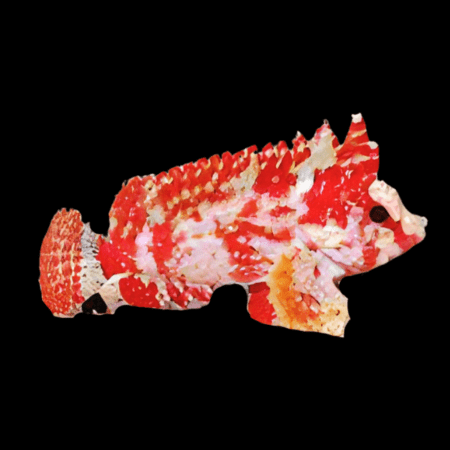Description
Fuzzy Dwarf Lionfish Dendrochirus Brachypterus
Overview The Fuzzy Dwarf Lionfish, scientifically known as Dendrochirus brachypterus, is a captivating marine fish native to the Indo-Pacific region. It is characterized by its small body with red, white, and black vertical stripes, delicate fan-like pectoral fins, and tall dorsal fins. This species is a member of the Scorpion Fish family and is known for its charismatic behavior and eye-catching appearance. Despite its endearing looks, it possesses venomous spines and can exhibit aggressive behavior when stressed or threatened.
Feeding Habits Fuzzy Dwarf Lionfish are carnivorous and primarily feed on crustaceans and fish in the wild. In a home aquarium, they should be fed a variety of meaty food items such as live, frozen, and vitamin-enriched brine shrimp, mysis shrimp, ghost shrimp, krill, chopped fish, silver sides, crab meat, and squid.
Suitable Tank Mates When selecting tank mates for the Fuzzy Dwarf Lionfish, it’s crucial to choose species that are not aggressive and are large enough to avoid being preyed upon by the lionfish. They are best suited for a FOWLR (Fish Only With Live Rock) system with similar-sized tank mates that won’t pick at their fleshy protuberances. Avoid aggressive species that may harass the lionfish.
Aggression Level The Fuzzy Dwarf Lionfish is considered semi-aggressive. While they are generally peaceful and indifferent towards their tank mates, they may display aggression when stressed or housed with aggressive tank mates. They have a tendency to consume smaller fish and invertebrates.
Recommended Experience Level Caring for Fuzzy Dwarf Lionfish requires a moderate level of experience due to their venomous spines, specific dietary needs, and compatibility considerations when selecting tank mates.
Necessary Water Parameters
- Tank Size: Minimum of 55 gallons
- Temperature: 74-80°F (23.3-26.7°C)
- Salinity: 1.020-1.025
- pH Range: 8.1-8.4
- Carbonate Hardness: 8-12 dKH
The Fuzzy Dwarf Lionfish should be provided with adequate open space in the aquarium, a sand substrate, and plenty of live rock for hunting and refuge. They are not considered reef-safe and should be housed with caution when considering tank mates.
